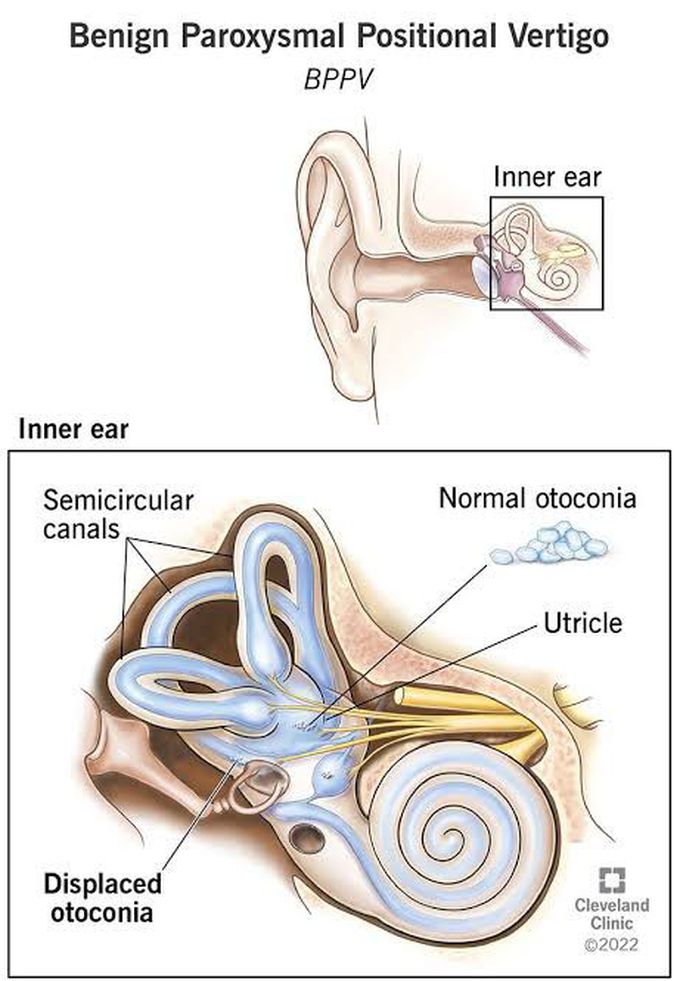


Benign paroxysmal vertigo
This is one of the most common causes of vertigo. It can occur during specific head movements, while standing up or bending over, crossing the road, or turning in bed. BPPV involves short, intense, recurrent attacks of vertigo (usually lasting a few seconds to a few minutes). It is often accompanied by nausea, although vomiting is rare. You may also experience your eyes briefly moving uncontrollably (nystagmus). Lightheadedness and a loss of balance can last for several minutes or hours after the attack. BPPV is thought to be caused by small fragments of debris (calcium carbonate crystals), which break off from the lining of the channels in your inner ear. The fragments don't usually cause a problem, unless they get into one of the ear's fluid-filled canals. When your head is still, the fragments sit at the bottom of the canal. However, certain head movements cause them to be swept along the fluid-filled canal, which sends confusing messages to your brain, causing vertigo. BPPV usually affects older people, with most cases occurring in people older than 50 years of age. BPPV may occur for no apparent reason, or it may develop after: an ear infection ear surgery a head injury prolonged bed rest – for example, while recovering from an illness
Best Probiotics For Womens 2025: Are They More Effective?Bitechchain Review - Is Bitechchain Scam Or legit?LipoFit Reviews - Dr Jennifer Ashton's Gelatin Caps for Weight Loss!MemoMeister Kapseln | BerlinPrestigio Marketdex Review - Can Beginners Profit With Prestigio Marketdex? Expert Insights

